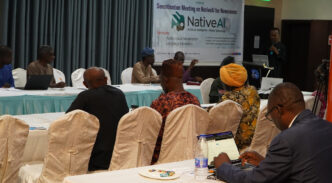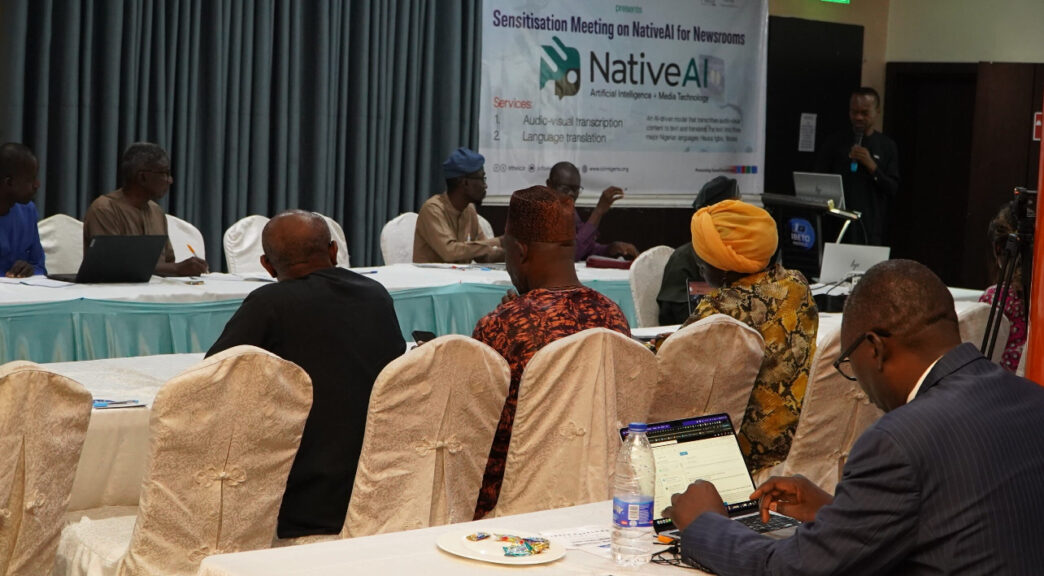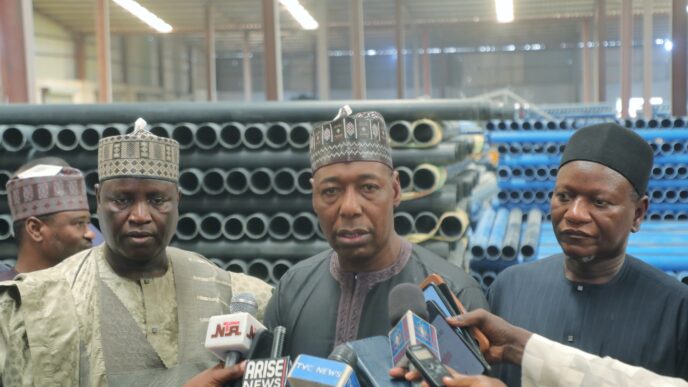International Centre for Investigative Reporting (ICIR), has unveiled Nigeria’s first indigenous artificial intelligence (AI) tool created to assist journalists, researchers, and students with transcription and translation tasks.
Gatekeepers News reports that ICIR is a non-profit media organisation dedicated to advancing transparency and accountability through investigative journalism.
Speaking during the official launch in Abuja on Wednesday, the ICIR’s Executive Director, Dayo Aiyetan, explained that the innovation was developed to simplify the transcription of audiovisual materials and to translate them into Nigeria’s three major languages — Hausa, Igbo, and Yoruba.
Aiyetan encouraged journalists and media organisations to embrace the technology, noting that digital tools are transforming how media work is done.
He said, “At the ICIR, as journalists, we also face difficulties with transcription and then translation. For our FactCheckHub, the verification platform, for instance, we have to start paying people to do translation for us.”
“So, when Google talked about a technology solution in the media, we immediately thought of, you know, simplifying the work of journalists, researchers and students so that you can take a one-hour video file and transcribe it in just a few minutes, and you can also do the same with this file and translate it into three Nigerian languages.”
“Today is for us to familiarise you with the media; we are doing this in Abuja; we are doing it in Lagos.”
“We want the media to take over this, and we are hoping that everybody in the room would have your buy-in, but not just your buying, but the buying of your different media organisations so that you can go back to your newsrooms and talk about the native AI.”
“We expect that you go back to your newsrooms and introduce and expand its use.”
Aiyetan added that the tool is already proving useful to both ICIR reporters and journalists from other organisations.
Eunice Enoch, programme officer at the ICIR, further explained that the tool, available for free at www.nativeai.icirnigeria.org.ng, is capable of accurately transcribing audio files in English while recognising local accents before translating the text into Hausa, Igbo, or Yoruba.
Eunice said, “Native AI — from the name ‘native,’ native means something that is indigenous, something that is your own, something that is close to you. So native AI for newsrooms is an AI-driven tool that was developed by the ICIR, and this tool transcribes English audiovisual.”
“Note the word ‘English’ so that you don’t want to upload the Igbo or Itshekiri language, and then it doesn’t work, and you fall behind, and you are saying it doesn’t work.”
“So, it only transcribes English audiovisuals into text, and then it translates this text into the three major Nigerian languages, that is, Hausa, Igbo and Yoruba, in a few minutes.”
She noted that the idea behind developing the tool is to help journalists work more efficiently by replacing the time-consuming manual transcription and translation process.
Eunice also highlighted that the innovation enhances accessibility, enabling people with hearing impairments to engage with media content more easily.
She said, “If you notice, we have representatives from the hearing impairment community among us. We have made this too for them as well.”
“We had them in mind as well so that they also would be able to access our media content. They upload audio files and they have it transcribed, and you know they have it translated if you so wish.”
“As I said, we wanted to streamline journalistic systems and processes, we wanted more inclusion of media content through diversity in different languages, and we also wanted accessibility of media content for the hearing-impaired community.”












